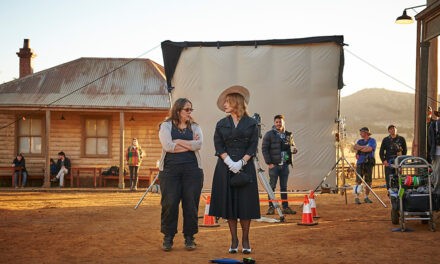SERIES. International Journal of TV Serial Narratives” (https://series.unibo.it) is an open access and peer-reviewed journal, with ISSN and indexed in major international databases. It publishes 2 issues per year, and is mainly devoted to television seriality. It is a joint project by Universitat Politècnica de València (Escola Politècnica Superior de Gandia/DCADHA) and Università di Bologna.
We are pleased to invite submissions for the ninth issue of the journal (Vol 5 No 1), which will be out in June 2019. The main focus of the journal is to promote a global discussion forum and an interdisciplinary exchange among scholars engaged in research into TV serial narratives. We encourage methodological innovations and contributions concerning the narrative, technological, economic, social and cultural impact of television dramas and comedies, webseries, telenovelas and other serial forms.
SERIES encourages submissions that cover a large variety of topics, including:
- theoretical and methodological explorations on the nature and value of television seriality;
- taxonomies and analysis of specific formats, styles, linguistic features, genres;
- cognitive perspectives on narrative structures, characters, viewer engagement;
- investigations of creative, production, distribution and marketing issues;
- empirical research on audiences, fandoms, digital communities;
- social network analysis, big data analysis, and other possible frameworks and models;
- comparative studies on a transnational and/or transmedial basis;
- investigations of stylistic elements, temporality, narrative and character design;
- historical approaches to seriality across different media;
- peculiar case histories (authors, subgenres, countries, production companies, etc.).
Articles should range between 5,000-8,000 words (including abstract, notes and references). Full guidelines can be found on our website. In order to be included in the issue, full manuscripts must be sent by January 31st, 2019. Expected publication date: June 2019.
If you have any questions, please contact the journal at seriestv@upv.es.
> Special section: “Making Models of Contemporary Serial Media Products”
This special section of SERIES — part of Vol 5 No 1 (2019) — aims to develop, and promote discussion of, qualitative and quantitative methods for studying television series. We are looking for contributors to explore under-utilized tools for building both qualitative and quantitative models of serial television. One of the challenges of studying long-running television dramas can be to capture a clear “picture” of textual trends, production issues and audience response over time. Like studying an extended corpus of fiction, such as the body of work that comprises a national literature, long-running television series provide much more material than a close-up view can incorporate.
Qualitative and quantitative models are a potentially fruitful way to answer this challenge. By making models of textual form, audience response, production practices, commercial conditions, and networks of creative personnel — among other possible lines of inquiry — we might reveal aspects of the contemporary serial television that have previously been invisible or overlooked.
We welcome any contributions that employ the use of qualitative and quantitative models to study textual and/or contextual aspects of contemporary serial television. Essays might focus on adoption of modelling approaches to the study of individual programs, or particular sites of production, consumption, and reception or audience response. Essays might consider how such models might help to identify textual and contextual features that correlate with the persistence of particular programs over time; the ability of particular shows to adjust their form or market appeal in response to changing contextual conditions; and the ways in which different production, distribution, or exhibition contexts influence textual form and/or audience response.
SERIES suggests some possible methodological lines to discover patterns, trends, or characteristics of serial television that would otherwise not be apparent, but other tools are also welcome:
- processing textual objects through the use of automated software;
- analysis of social discursivity among communities of spectators and fans by using digital tools – such as large data sets obtained online and from social media and analyzed through automated software;
- evaluation of production and consumption processes through social network analysis;
- studies about television series through the use of qualitative and quantitative models.
Articles should range between 5,000-8,000 words (including abstract, notes and references). Full guidelines can be found on our website. In order to be included in the issue, full manuscripts must be sent by January 31st, 2019. Expected publication date: June 2019.
For more information and specific questions about the special section, please contact Marta Rocchi at marta.rocchi5@unibo.it.





